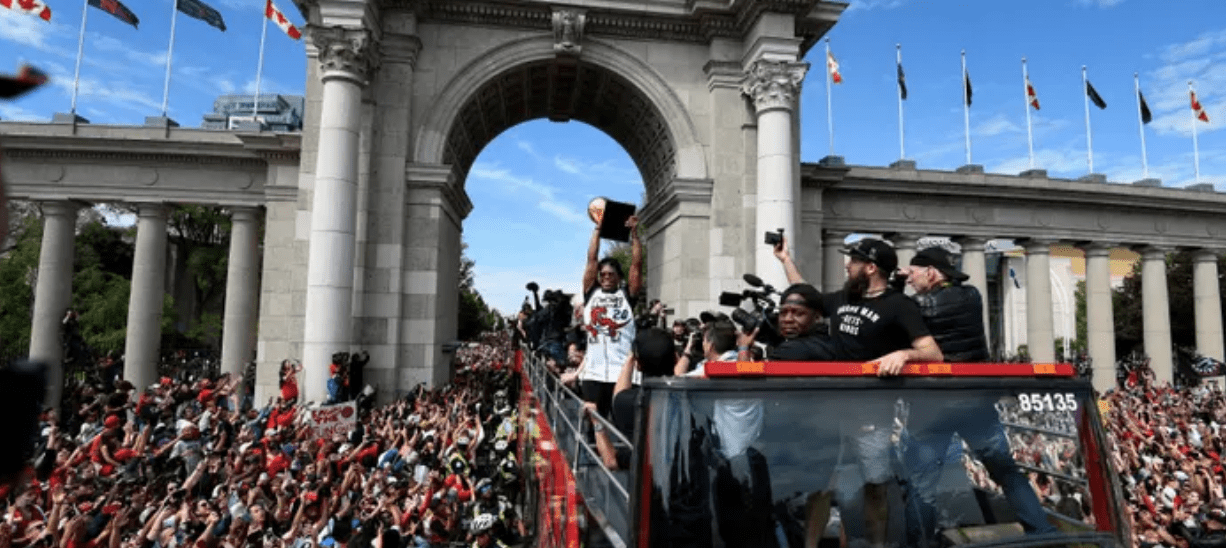As basketball expands around the world it helps educate those abroad and at home that other cultures are not to be feared
Folklore tells us that if you can see your initials in a spider’s web, you have good fortune ahead. Maybe the NBA saw their initials in the hoop net last Thursday because the Toronto Raptors’ championship victory that night could be an early prognosticator of a brighter future for professional basketball worldwide. At the very least, it could encourage the expansion of NBA teams to include other countries from south of the border and elsewhere, leading to the league evolving into a more international competition.
As the Borg would say, “Resistance is futile.” The winds of change are already upon us. Despite California’s Golden State Warriors being the “hometown” favorites, it was Canada’s “visitor” team that most Americans were rooting for in the finals. According to a recent poll, the majority of Americans in every state except California, Nevada, and Hawaii were cheering for the Raptors to win. This is not a slight against the excellent Warriors, who may just be victims of their own deserved success in that people prefer rooting for the underdog. When it comes to sports, Americans don’t seem to share the xenophobia and nationalist fervor of the current White House administration.
If that welcoming spirit continues to spread we may see changes beyond sports that extends to cultural and diplomatic areas. In 1996, economist Thomas Friedman proposed the “Golden Arches Theory of Conflict,” which suggested that no two countries with a McDonald’s franchise would go to war with each other because “countries with middle classes large enough to sustain a McDonald’s have reached a level of prosperity and global integration that makes warmongering risky and unpalatable to its people.” Of course, that didn’t hold up in reality for a few countries, but a similar basic ideal applies here: countries sharing an NBA franchise are more likely to also share cultural awareness – and that can lead to us focusing on our similarities without fearing our differences.
Sports has often been a trailblazer for an enlightened social agenda. Ibtihaj Muhammad won a fencing bronze medal at the 2016 Olympics – and also became the first woman to represent the United States at the Games while wearing a hijab. The so-called “ping-pong diplomacy” of the early 1970s, in which the US and China exchanged ping-pong players, is credited with easing tensions between the countries and making President Richard Nixon’s visit to China possible. The dozens of professional athletes who have taken stands against social injustice in the US, regardless of the cost to their careers, shows us that we have many athletes prepared to be international ambassadors.
Read full article at The Guardian

